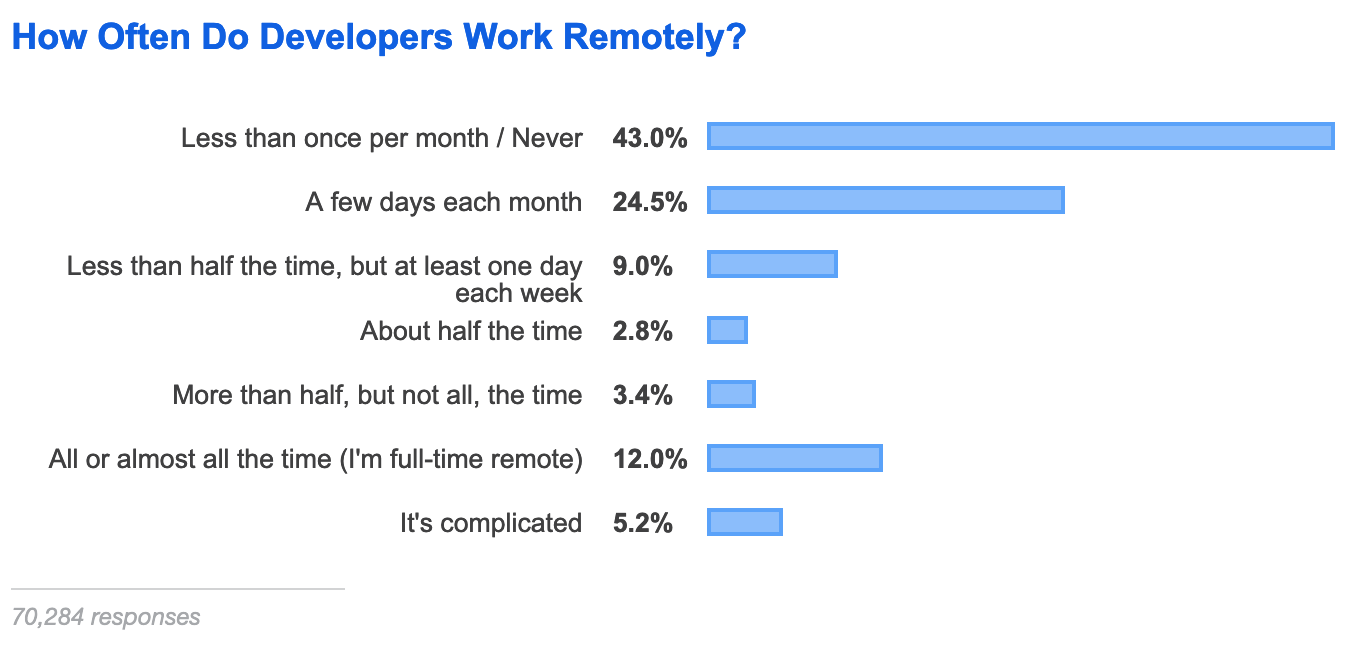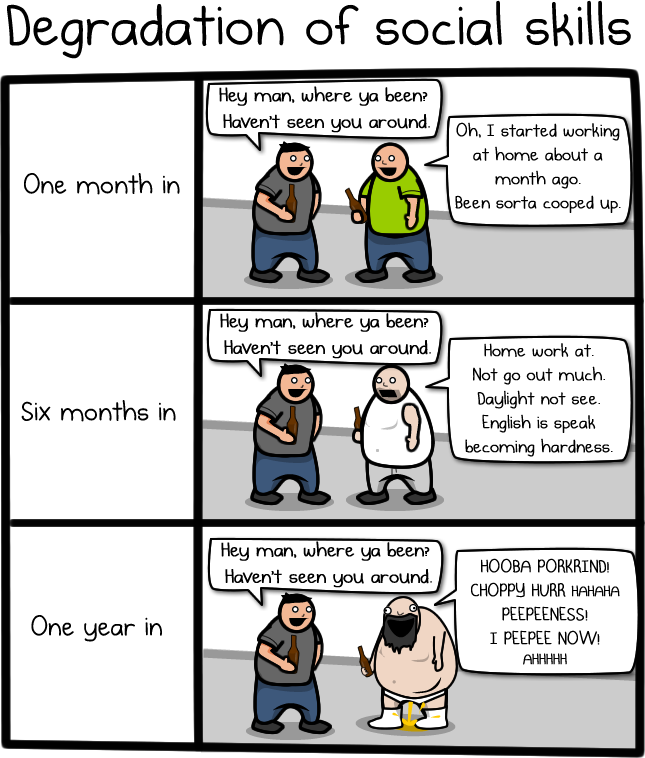Remote work - a global experiment
ideas news
4 minutes read
Having worked more or less remotely for the past two years, I became a big enthusiast of this flexible approach which helps people save time while having more control over their daily job routine.
Due to the 2020 COVID-19 pandemic a vast amount of employees worldwide have been subjected to a global experiment on unprecedented scale. While trying to curb the spread of the virus, a substantial part of jobs which were previously done exclusively onsite, are now transforming into remote jobs.
How will this affect work efficiency and what would be the future of rigid on site positions?
Save time, make time
There have been countless articles listing benefits of remote work written already. The usual pros ranging from being independent and having flexible schedule to staying more focused and avoiding office politics. While those claims are true, for me the real game changer is the time saved on the daily commute. In one of the previous jobs, I had to spend around 40 minutes just getting to (and from) the office every day. Most people will agree that this number is not unusual. What is disturbing is that this results in more than 3 hours lost weekly. Being a perfectionist who does not like to waste time, I naturally tried to use this time in some effective manner, either by listening to podcasts or reading a book (whenever traveling with public communication). Thing is, it wasn’t always possible especially while being sleepy in the morning or weary after a particularly exhausting day.
One of the countries where saving time factor will be of the greatest importance is USA. According to the US Census Bureau the average time of one way commute in a state like New York is 35.9 minutes. This translates to a full 6 hours weekly. What to do with this time? Possibilities are endless but to keep it simple, more than one hour of sleep per day could mitigate the problem of chronic sleep deprivation which affects almost 40% of US population. Rested people equal happier and more productive employees.
The shift
Chances are, more and more people will start to reclaim that time previously lost on work commute. Along with the development of COVID-19, hurried transformations are introduced in some of the biggest companies to make it possible to retain employees at home and not endanger their health. In a company statement issued on 1st March 2020 Twitter urged almost 5000 of its staff to stay at home and shift to online communication only. Most of 8000 people working for Google in Dublin’s office, which is the tech giant’s European headquarters, were also told to perform their jobs from home for the foreseeable future. It’s very likely that more companies will follow in the next weeks or even days as governments are trying to stop the spread of contagious virus. The shift to remote work is gaining momentum as it’s the best solution to keep company running and money flowing while also protecting the personnel.
Having that in mind, it’s interesting to look at 2019 Developer Survey conducted by Stack Overflow which is “the largest and most comprehensive survey of people who code around the world”. Especially let’s consider the answers related to the remote work topic. Out of the 70284 responses, almost 43% of developers worked remotely less than once per month (or never). Only around 18% of people had a more flexible approach working from home more than half of the time. Looking at those numbers, we can see that there was a lot of space for improvement which is likely to happen along with current employment trends. We can only speculate as to how the epidemic will develop but shifting to remote work is inevitable if the society wants to effectively curb the spread of the virus.

2019 Stack Overflow's Developer Survey
The future
One question that we should also ask ourselves is what would the future of on site positions look like in the post-covid times? Much depends on the attitude of the employees but I hope that the whole remote work experiment will prove that this is indeed a very cost and time effective solution for both employers and employees. Most likely, companies which have sent all staff home will start questioning themselves whether they should let them come back to the office at all. Why pay for the expensive office spaces if the majority of communication is online anyway? The shift in remote work could quite by accident lead to radical changes on the office space market, especially in large and developed cities. What could become of the biggest office buildings in city centers if their tenants would abandon them? Could they be converted to flats which could greatly lower the median price of square meter for those wanting to buy a place somewhere closer to centre instead of far suburbs? Many interesting questions emerge but the answers are yet to be discovered. One thing for sure - the COVID-19 situation can prove to be a game changer factor on multiple levels.
Mental hygiene
As with everything, there are people who will quickly fall in love with the remote work lifestyle and there are those who simply cannot concentrate at home. These are not fantastic news for the latter, so they better hope that the situation resolves quickly. Love it or hate it, we must take into account also the dark side of remote work. Bigger isolation and lack of social contact can result in nothing good. Sitting at home 24⁄7 can quickly turn you into mad house member. If this were a normal situation and not a global pandemic, I would say that it’s vital to go out at least few times a week and talk frequently to other people.
Thing is, we are not supposed to go out much which makes the whole situation substantially harder to bear. To keep your mental hygiene and social skills on point while #StayingAtHome - try some of those:
- Netflix party - tool for watching Netflix online with your friends
- Tabletopia - one of the biggest communities of online board games where you can easily play with your board-loving friends
- Discord - quick and easy chat to instantaneously connect with other people
- Watch2Gether - simple service for content watching from sites like YouTube and Vimeo in sync with your friends
- Curve Fever - crazy and addictive deathmatch game that you can play in multiplayer online

Why working from home is both awesome and terrible by The Oatmeal